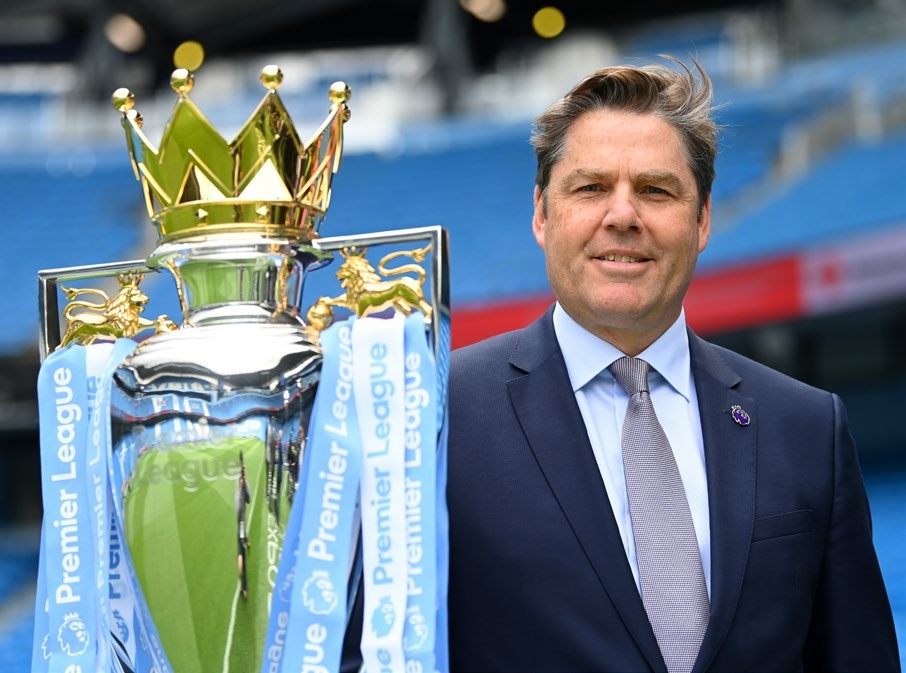
Will an independent regulator make any difference in English football?
That’s what we want to know in our latest instalment of The Debate, in which two of our esteemed team take on one another to argue for or against.
This month, deputy editor Matthew Ketchell takes on senior staff writer Mark White – but we want to hear from you: vote in our poll below and leave a comment.
You may like
YES: Independent regulation brings fans back closer to the heart of the game, says Matthew Ketchell (@ketchell)
Matthew Ketchell (Image credit: Future)
What makes me confident that an independent regulator will make a positive difference is that Premier League CEO Richard Masters and directors of leading clubs opposed it.
Too much focus is on cash flow at the top of the game rather than the chasms growing throughout the pyramid beneath it.
For the past two Premier League seasons, the three promoted clubs have mustered anaemic efforts to stay in the league. In 2020/21, parachute payments from the Premier League to five recently relegated clubs totalled £233m – three times as much as the other 19 Championship sides received in total.
Bury are an example of a club who may be helped by an independent regulator
That only increases the pressure to overspend, prompting the rest of the EFL to do the same. It’s not worth the risk – ask fans of Bury, Macclesfield, Southend, Wigan or Morecambe.
The Independent Football Regulator (IFR) will have power to look at all the elements of football’s distribution mechanisms, with parachute payments high on the agenda.
One change the IFR could implement is to send more money down the chain and distribute it more evenly.
That may well improve competitiveness in the EFL, increase standards and mitigate reckless spending. The top tier is nothing without firm foundations.
Too much focus is on cash flow at the top of the game rather than the chasms growing throughout the pyramid beneath it.
Independent regulation brings fans back closer to the heart of the game, thanks to the bill ensuring that supporters have a genuine say on ticketing and club heritage.
Like listed buildings, football clubs need to be protected, maintained and accessible. A regulator will ensure they are.
Individual owners always act in self-interest; you could argue that politicians do, too. The difference is a regulator can be held accountable.
Mark White (Image credit: Future)
On paper, an Independent Football Regulator looks like it’s a great idea. But the game isn’t played on paper.
It’s not that I don’t want football to be better run, it’s that I don’t have faith that yet another anonymous acronym will offer any solutions. This July, MPs were asked to vote on giving football fans 10 free-to-air matches a season, and they chose not to.
From the Super League fiasco to the PGMOL mess, committees fail to hold anyone accountable.
An independent regulator may not prevent Manchester City’s owners from continuing their dominance
The fact that the bill references things we’re already supposed to have, such as owners’ tests and fan consultation, is proof that the current bodies aren’t working. So what makes this one different?
For more than 30 years, the Premier League has governed itself, splitting some TV revenue equally and voting on rule changes. It’s become one of the country’s biggest exports: a billion-pound industry, with investors from the US elite and the Middle East, with the Championship not far behind.
Some will argue that an independent regulator intervening in a successful industry puts that at risk – but that horse has bolted.
From the Super League fiasco to the PGMOL mess, committees fail to hold anyone accountable.
In theory, the IFR will prevent owners in English football from being able to compete with foreign leagues – in practice, the rich and powerful are far too rich and powerful to be scuppered by a faceless ombudsman. We’re trying to install stabilisers on the Millennium Falcon here.
At many European clubs, supporters are at the core, whether through socios or the 50+1 rule, and English football needs an equivalent – something stronger than just a ‘golden share’ to veto decisions. We need proper change, not hollow gestures.
I’d love a regulator to make a difference, but when has football ever benefited from another layer of bureaucracy? It’s like suggesting we need another VAR room to catch all the errors from the first one.
Disclaimer: This news has been automatically collected from the source link above. Our website does not create, edit, or publish the content. All information, statements, and opinions expressed belong solely to the original publisher. We are not responsible or liable for the accuracy, reliability, or completeness of any news, nor for any statements, views, or claims made in the content. All rights remain with the respective source.
